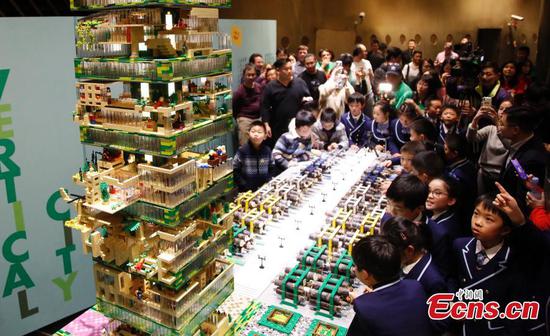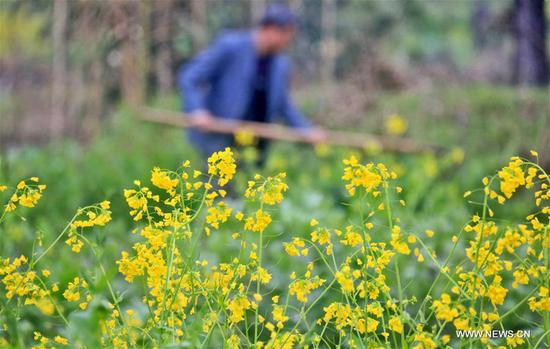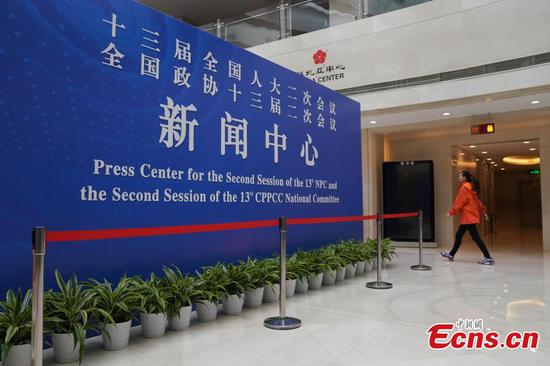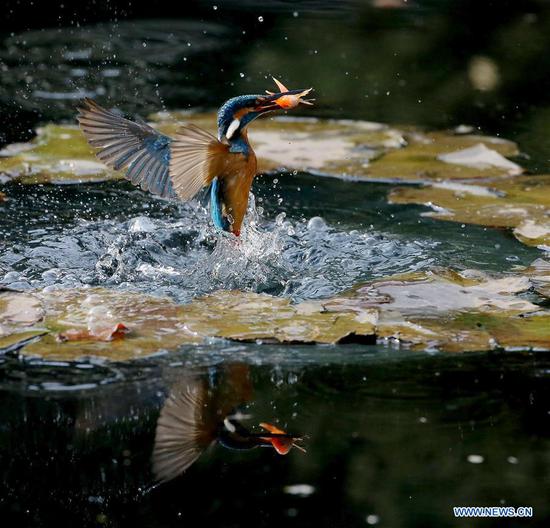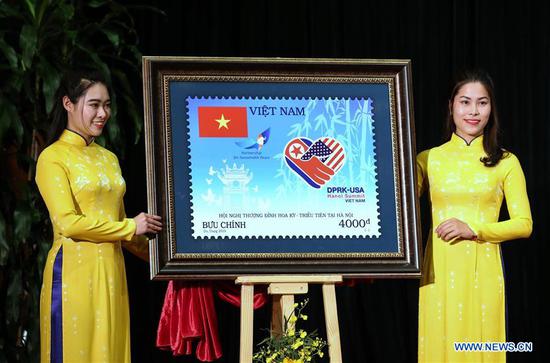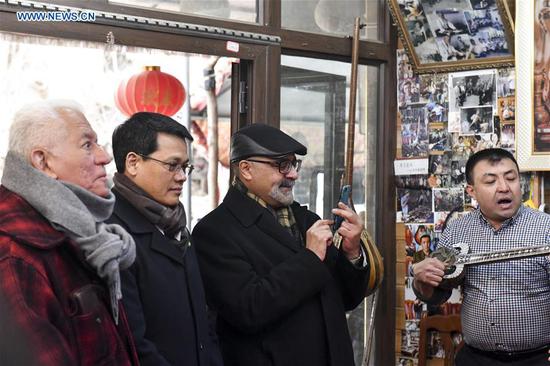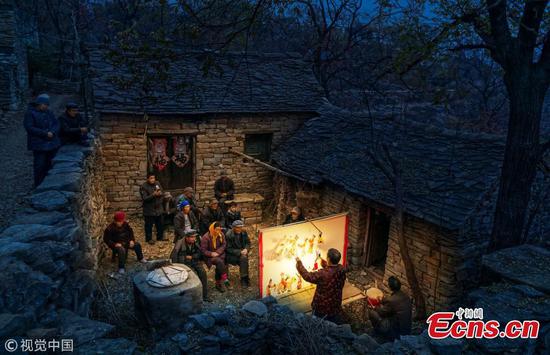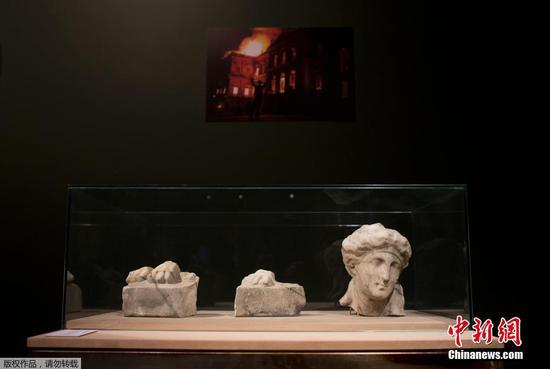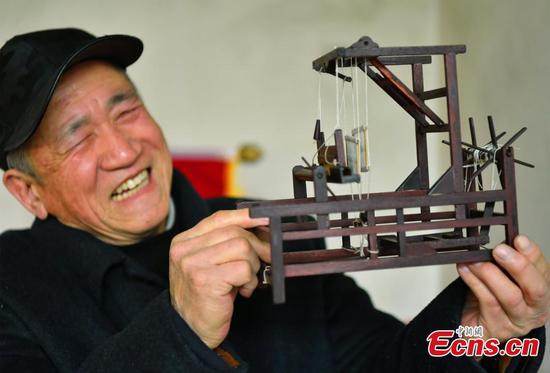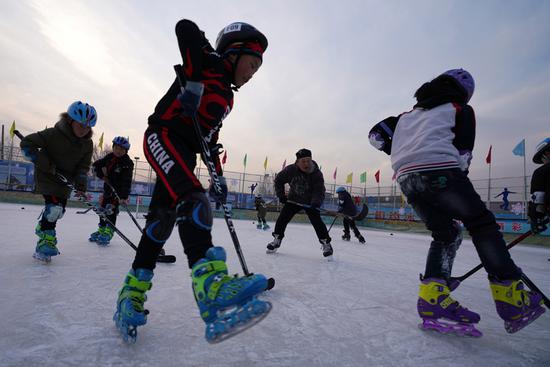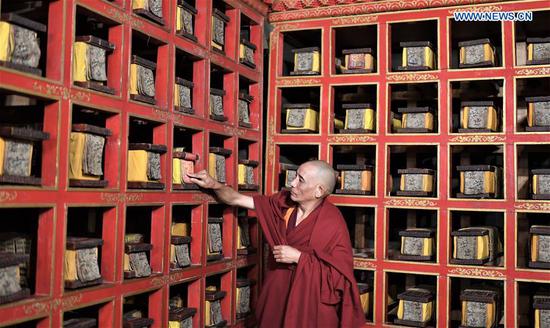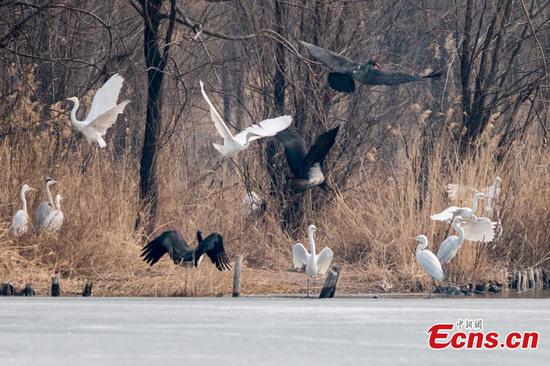Seeing Xue Qiaoping wearing a short jacket, a leather beret and a pink scarf, it is hard to imagine how she would look on stage with 10 tusks protruding from her mouth.
Xue is an exponent of shuaya, meaning "teeth play", a highly unusual performance that is part of pingdiao (flat tone), a local folk opera of Ningbo, Zhejiang province.
Before going on stage, actors insert tusks-which are about 6 to 8 centimeters long and taken from a male wild boar-into their mouths. The tusks are moved in and out using the mouth and tongue to reflect characters' changes of emotions, as songs are sung and lines spoken.
"Teeth play" and face-changing in Sichuan Opera is together known as xiliandongya ("face in the West and teeth in the East"). Shuaya is just a part of pingdiao, which dates back to the 17th century and has about 400 tunes in its repertoire, and lyrics are sung in the local dialect. Traditionally, the music is played with drums and bronze gongs, meaning a loud, noisy performance, but contemporary recitals include stringed instruments such as the erhu, violin and cello.
The themes of the plays usually revolve around social ethics and family relationships.
Xue, 37, joined Ninghai Xiaobaihua Yueju Opera Troupe when she was 16, being taken on with nine other apprentices by Ye Quanmin, a fifth-generation exponent of the art.
"It was very hard at first," Xue says. "I started practicing with two teeth, and wore them almost all the time, except when I was eating or sleeping."
Xue recalls that she lost around 5 kilograms because her mouth was sore and bleeding, which made it hard to eat. Nevertheless, she persevered in her training, eventually mastering the skill and becoming a frequent stage performer.
"Shuaya is our heritage and our treasure, and I feel it is my duty to play it well and to pass it on to others," says Xue, who can now play with 10 teeth, and whose pingdiao performances have taken her to Europe, the United States and Japan.
At a performance in Aachen, Germany, which is a "sister city" of Ningbo, audiences seemed to recoil with fear, "frightened by my teeth", Xue says.
Most of her performances, however, take place in rural China and, during the recent Spring Festival holiday, she and her troupe appeared in shows at the cultural activity center of Jiujiang village, Ningbo, over three nights, much to the delight of locals, as well as relatives and friends of the actors.
The troupe performed one of the best-known pingdiao operas, Jinlian Zhanjiao ("Jinlian fights the dragon"), which tells the story of a young woman who practices martial arts and takes on an evil dragon in an effort to save her fiance and maid.
Slaying dragons is one thing, but attracting audiences is another. Because pingdiao is a lot less popular than Yueju Opera, the exponents of pingdiao have to perform both forms of opera to survive financially.
"If we want to stage a new play, the cost-including the design of the stage, costumes and script-can come to 1 million yuan ($149,352) and a troupe of our size just doesn't have that kind of money," says Tang Jiefei, head of Ninghai Xiaobaihua Yueju Opera Troupe.
As a way of broadening audience appeal, subtitles of the lyrics are now often shown on big screens near the stage.
"Pingdiao is a grassroots art form and should serve the public while continuing to develop based on its origins," Tang says.
Because of its dramatic expression, its rich variety of tunes and the shuaya technique, pingdiao was added to the list of national intangible cultural heritage items in 2006.












